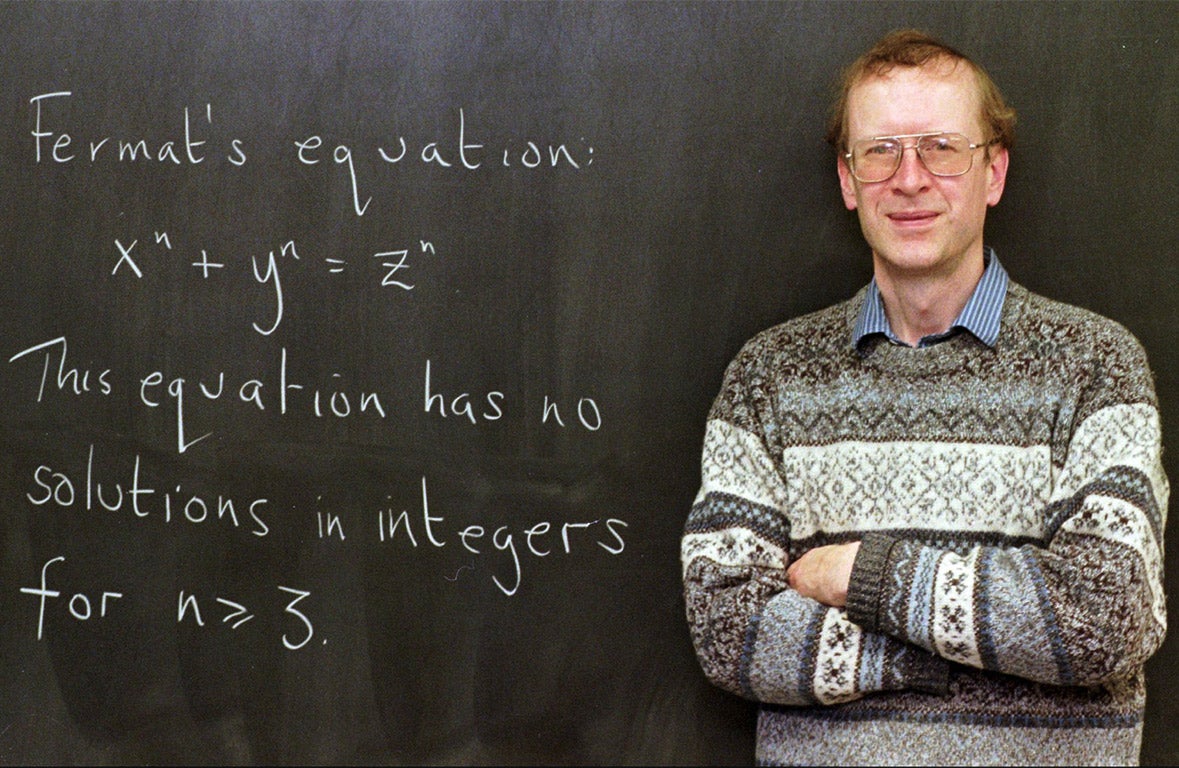Sir Andrew Wiles: British professor awarded Abel Prize for solving problem that baffled experts for three centuries
Sir Andrew's discovery described as 'an epochal moment for mathematics'

A British mathematician has been awarded one of the discipline’s top prizes for solving a problem that baffled experts for three centuries.
Sir Andrew Wiles, 62, has been awarded the Abel Prize – and almost half a million pounds – by the Norwegian Academy of Science and Letters for his proof of Fermat’s Last Theorem.
Cambridge-born Sir Andrew made his breakthrough in 1994 while working at Princeton. Formulated by the French mathematician Pierre de Fermat in 1637, the theorem states: There are no whole number solutions to the equation xn + yn = zn when n is greater than 2.
He will pick up the award – described as the equivalent of a Nobel prize for maths – and six million Norwegian krone (£495,000) from Crown Prince Haakon in May, for an achievement that the academy described as “an epochal moment for mathematics”.
Sir Andrew, a professor at Oxford University’s Mathematical Institute, said: “It is a tremendous honour. Fermat’s equation was my passion from an early age, and solving it gave me an overwhelming sense of fulfilment.
“It has always been my hope that my solution of this age-old problem would inspire young people to take up mathematics and to work on the many challenges of this beautiful and fascinating subject.”
The academy said Sir Andrew was awarded the prize “for his stunning proof of Fermat’s Last Theorem by way of the modularity conjecture for semistable elliptic curves, opening a new era in number theory”.
PA
Join our commenting forum
Join thought-provoking conversations, follow other Independent readers and see their replies
Comments